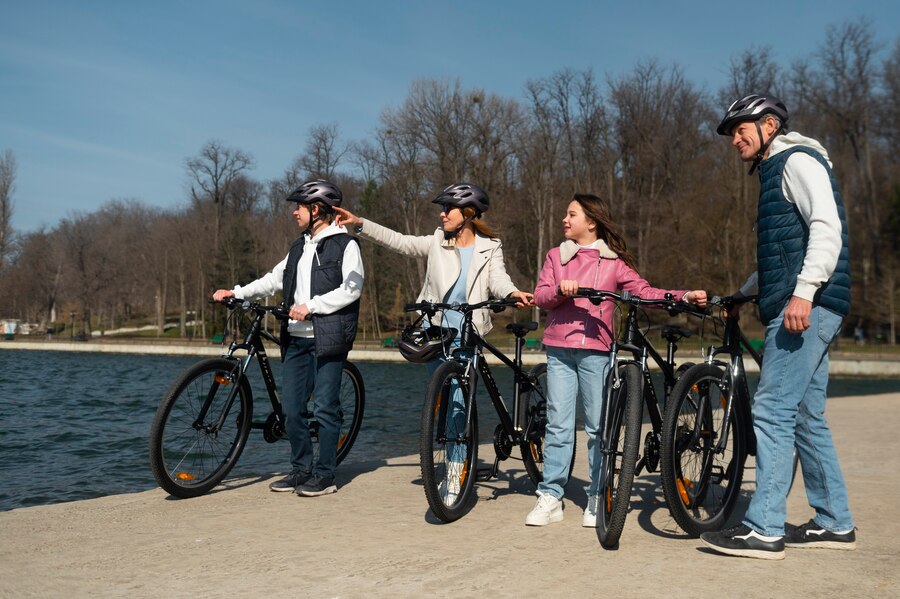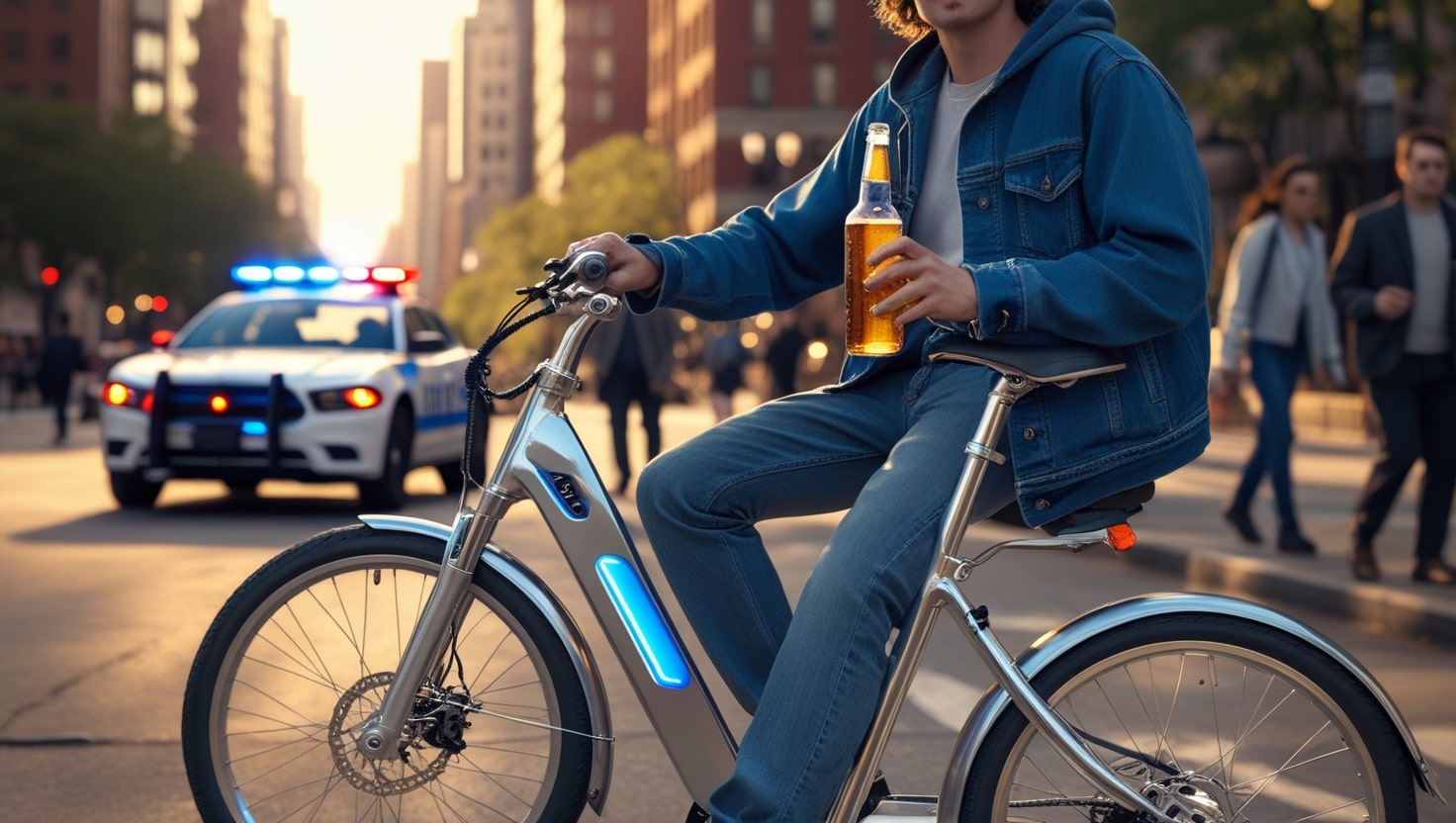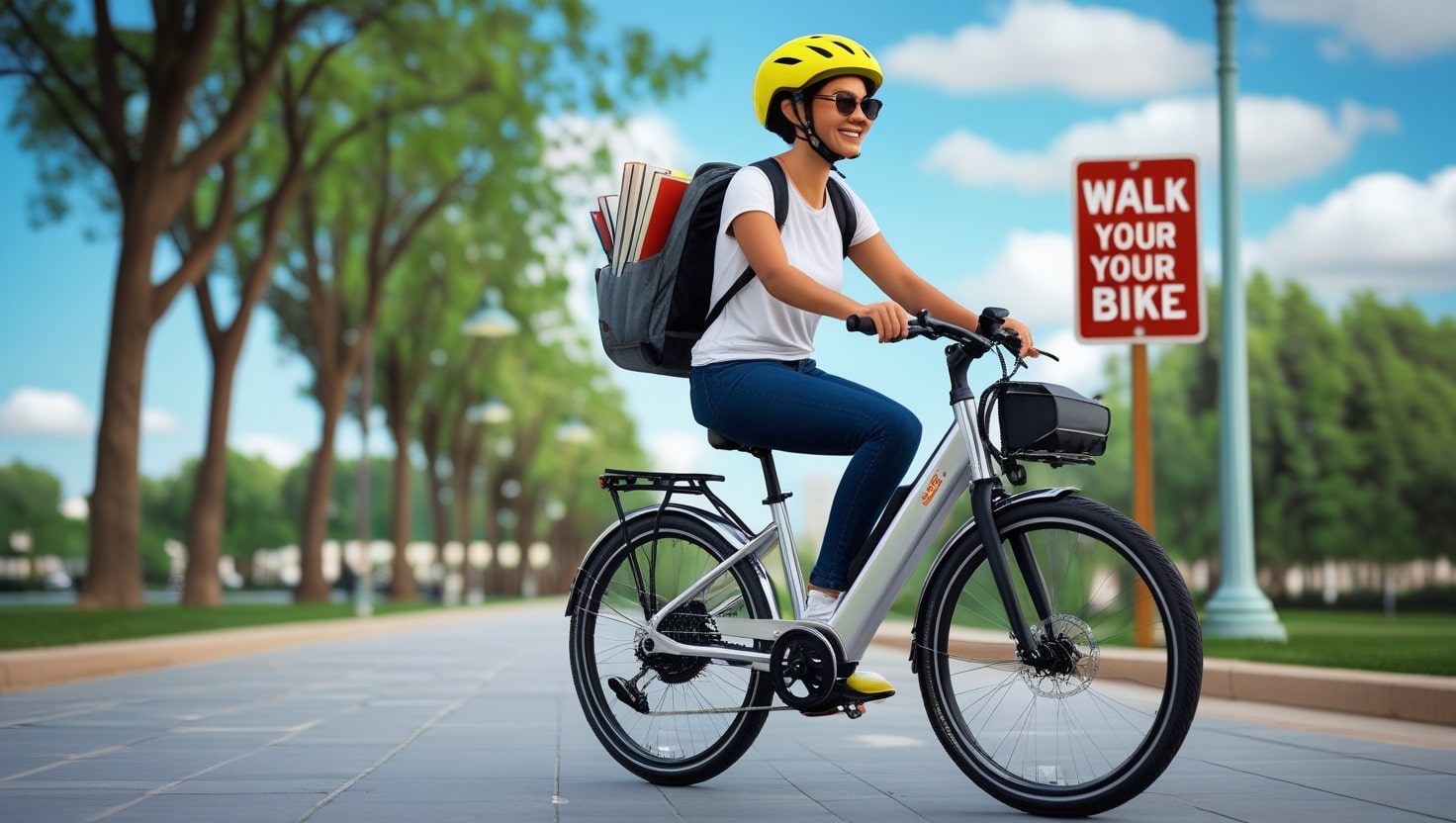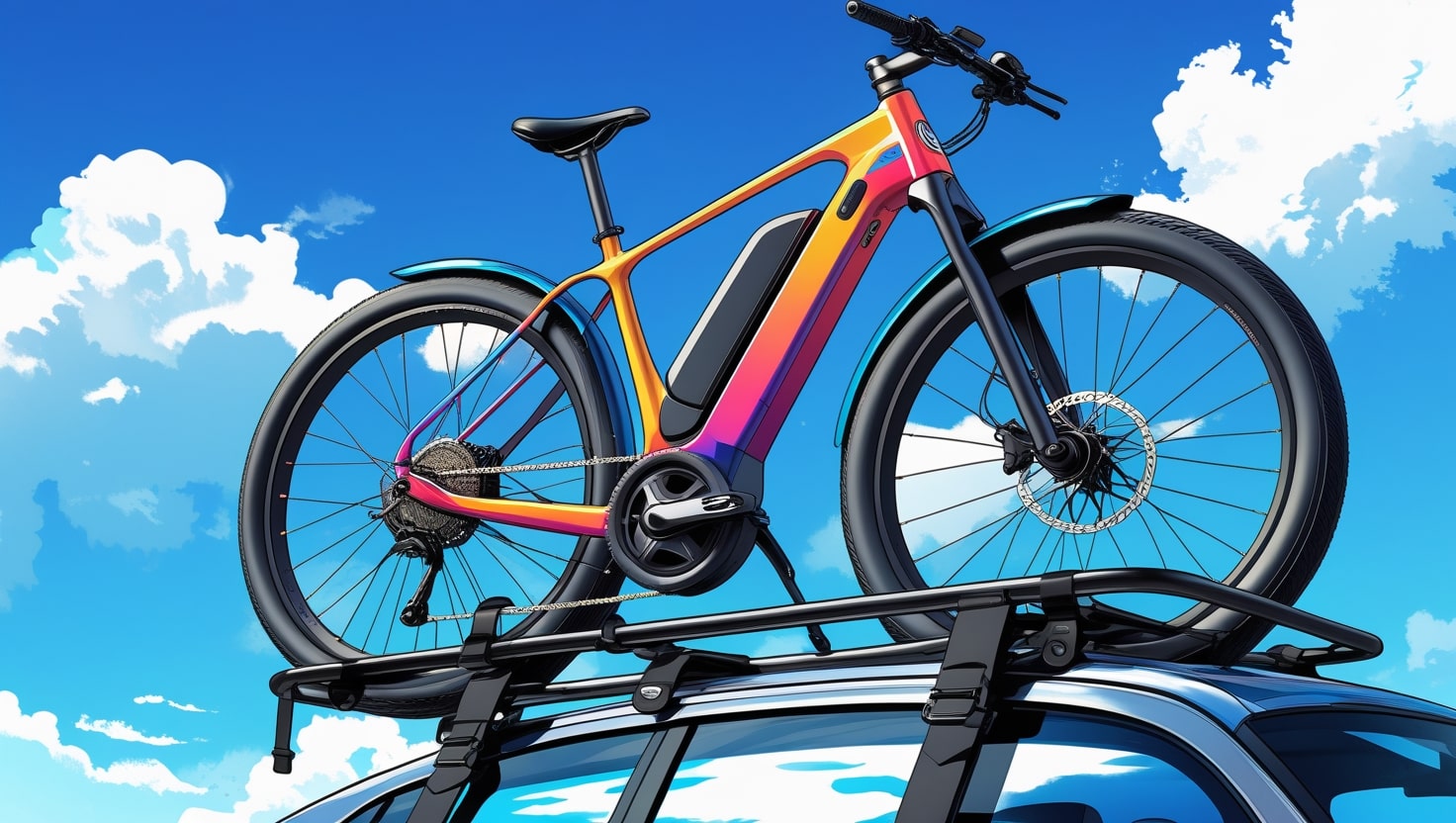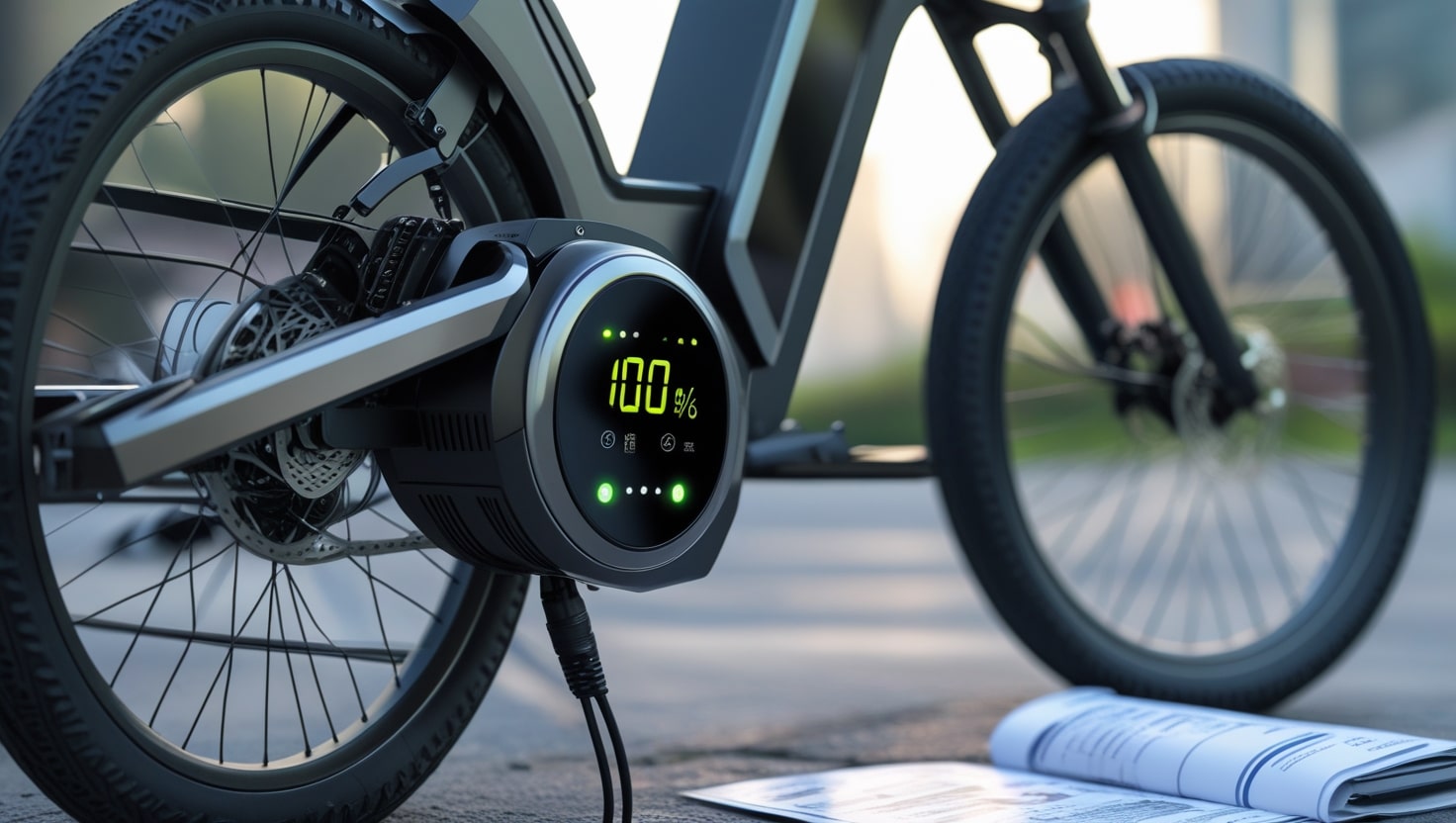If you’ve ever dreamt of exploring the gorgeous scenery of the Keystone State, riding an electric bike might be the perfect way to do it. Pennsylvania offers stunning parks and trails, including the iconic Great Allegheny Passage—a 150-mile trail stretching from Cumberland, Maryland, to Pittsburgh. However, before setting off, it’s essential to understand the ebike laws that apply here. Each jurisdiction in Pennsylvania has its own regulations, making it vital to stay informed about electric bicycle rules to ensure a safe and legal ride.
I’ve personally found the blend of picturesque trails and well-defined regulations in Pennsylvania to be a unique advantage for cyclists. Whether you’re traversing trails that cross multiple states or enjoying a leisurely ride, understanding these relevant laws will enhance your experience. For those new to the area, this primer on Pennsylvania ebike laws is a must-read before you hit the road.
Related: Utah eBike Laws Exposed
Street Legal Electric Bike: The Pennsylvania Ebike Laws
In the Commonwealth of Pennsylvania, the vehicle code has specific guidelines for what qualifies as an electric bicycle. Unlike many states that use a classification system with Class 1, Class 2, and Class 3 e-bikes, Pennsylvania applies blanket rules to all bikes, regardless of their characteristics like motor power or assist systems.
Under Pennsylvania law, an electric bicycle is a two-wheeled bike with operational pedals and an electric motor. The motor can serve as a source for either pedal assist (PAS) or throttle assist systems. These clear conditions make it easier to identify what legally qualifies as an e-bike, ensuring riders stay within the boundaries of the state’s rules. To be considered an e-bike, a vehicle must meet these specific requirements:
- An ebike cannot weigh more than 100 pounds.
- The bike must have a motor with a maximum power output of 750W.
- While using the motor, the speed cannot exceed 20 miles per hour (mph).
E-bike laws in Pennsylvania
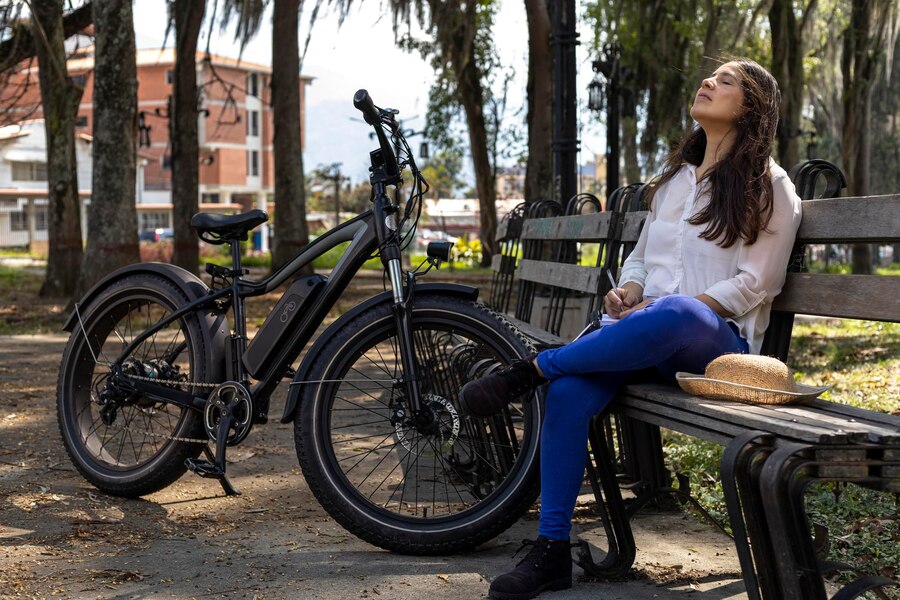
Pennsylvania ebike laws are designed to regulate where you can ride and whether wearing a helmet is necessary. This essential information provides a clear roundup of the most important rules for bike users. As of January 2023, these laws are current, but they can change over time, so it’s always wise to check local ordinances before heading out.
Where are you allowed to ride e-bikes in Pennsylvania?
In Pennsylvania, the law clearly states that e-bikes are allowed anywhere conventional bicycles can go, including bike paths, lanes, and roadways. In some cases, sidewalks may also be an option, but only if expressly permitted by the relevant local regulations.
Related: Breaking Down Alabama Ebike Laws
Can you ride e-bikes in Pennsylvania state parks and forests?

In Pennsylvania, the Department of Conservation and Natural Resources (DCNR) permits ebikes on trails where traditional bikes are allowed, including motorized trails and public roads, unless otherwise noted. However, using an e-bike on nonmotorized trails comes with some caveats. For instance, you must actively pedal instead of relying on throttle assist, though pedal assist is permitted.
Certain specific areas, such as natural areas and hiking trails, remain closed to cycling. Moreover, federal parks and game lands may have their own rules, so it’s essential to check with the appropriate regulatory body before heading out. Always confirm with the park or trail manager for any unique restrictions to ensure you’re riding within the guidelines.
How old do you have to be to ride an e-bike in Pennsylvania?
To ride an e-bike in Pennsylvania, you must be at least 16 years old. Unlike driving a motorized vehicle, there is no requirement to pass a licensing test to start riding a bicycle. As soon as someone turns 16, they are legally allowed to enjoy riding an e-bike.
What class of e-bikes are legal in Pennsylvania?
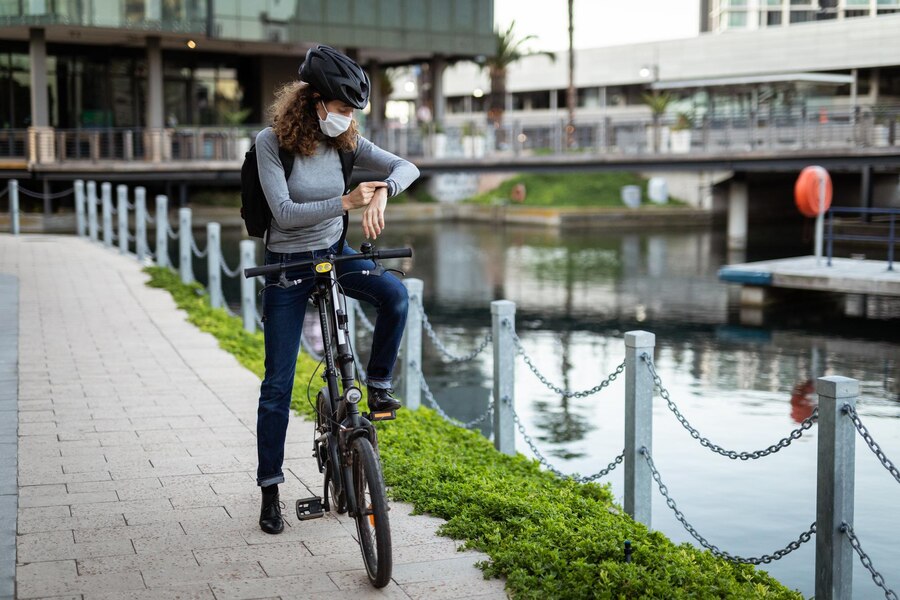
E-bikes are classified into different classes based on features like motor power and functionality. However, under Pennsylvania law, there is no specific distinction between these e-bike categories.
Understanding these general e-bike classifications can still be useful, especially if you’re in the market for your first electric bike. Here is a brief breakdown of the widely recognized e-bike classes:
Class 1: These are low-speed e-bikes that can reach up to 20 miles per hour (mph). The motor engages only when the cyclist is pedaling, making them also known as pedelecs or pedal cycles.
Class 2: These e-bikes also have a maximum speed of 20 mph. Like Class 1, they feature PAS (pedal assist), but they also include throttle assist, allowing the motor to power the bike forward even without pedaling.
Class 3: These e-bikes can go as fast as 28 mph. They include pedal assist and may or may not have throttle assist. Most Class 3 e-bikes are equipped with a speedometer to monitor speeds.
Related: Illinois Ebike Laws Exposed in 2025
PENNSYLVANIA EBIKE LAWS FOR TRAILS
LOCAL: It’s important to check with your local land management agency for any specific regulations about riding e-bikes on trails.
STATE: On State Forest property, Class 1 electric bikes are allowed on trails that are open to regular mountain bikes. For updates, you can contact the Pennsylvania Bureau of State Parks for the latest information.
FEDERAL: On federal lands administered by the US Forest Service, eMTBs are classified as motorized vehicles and are permitted on motorized trails, unless specifically prohibited by the local forest authority. go
eMTB GUIDELINES
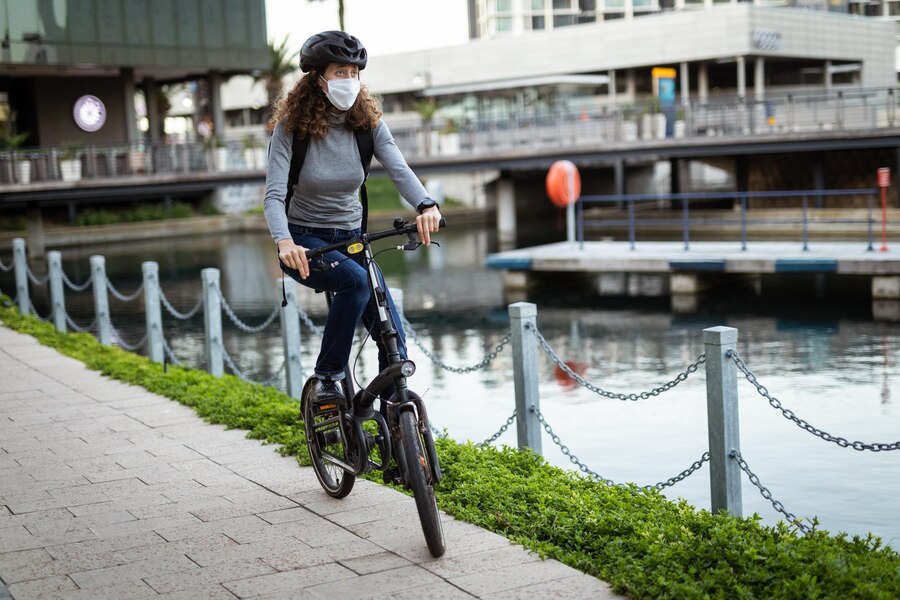
- eMTB access varies across federal, state, county, and local trails, so it’s important to check specific rules.
- Natural surface trails open to both motorized and nonmotorized uses are generally designated for eMTB riding.
- Trails managed for nonmotorized activities may not allow e-mountain bikes, so always confirm before your ride.
- Avoid riding in areas where the rules are unclear; stay on legally authorized trails to demonstrate that mountain bikers are responsible users.
- When in doubt, consult the land manager for specific access details, as local rules may change frequently.
Great eMTB Rides in Pennsylvania
Pennsylvania is home to several notable eMTB trails that allow riders to explore the natural beauty of the state on two wheels. For example, Rattling Creek in Lykens stretches 22.3 miles, while the Moraine Full Meal Deal in Harlansburg covers 12.5 miles. These locations provide excellent opportunities for e-bike enthusiasts to enjoy scenic adventures and test their skills on diverse terrains.
Related: Montana Ebike Laws Simplified
Do you need to wear a helmet when riding an e-bike in Pennsylvania?
In Pennsylvania, state laws require all cyclists under 12 years of age to wear a helmet, but there are no helmet requirements for e-bike riders since you must be 16 and up to ride an electric bicycle. Still, wearing a helmet is a smart decision that ensures you stay safe during an accident. For more details, check out our state-by-state helmet law guide to understand the importance of helmet use while e-cycling.
Do you need a license, Registration, and Insurance to ride an e-bike in Pennsylvania?
In Pennsylvania, you don’t need a license to operate an e-bike, nor do you need to register the bike like a normal car or get insurance. However, opting for a comprehensive coverage package can be a smart choice. It can help cover repairs, medical bills, and other expenses in case of an accident, providing peace of mind for riders.
Local ordinances for e-bikes in Pennsylvania
While Pennsylvania ebike laws provide general guidance, each municipality may enforce its own laws regarding ebike use. It’s essential to consult your local government for details, which can be done by checking with your DMV or police department. For example, Smedley Park in Delaware County has a complete ebike ban, so always verify local rules before riding in specific areas.
Related: Wisconsin Ebike Laws
What you should know before riding your e-bike in Pennsylvania
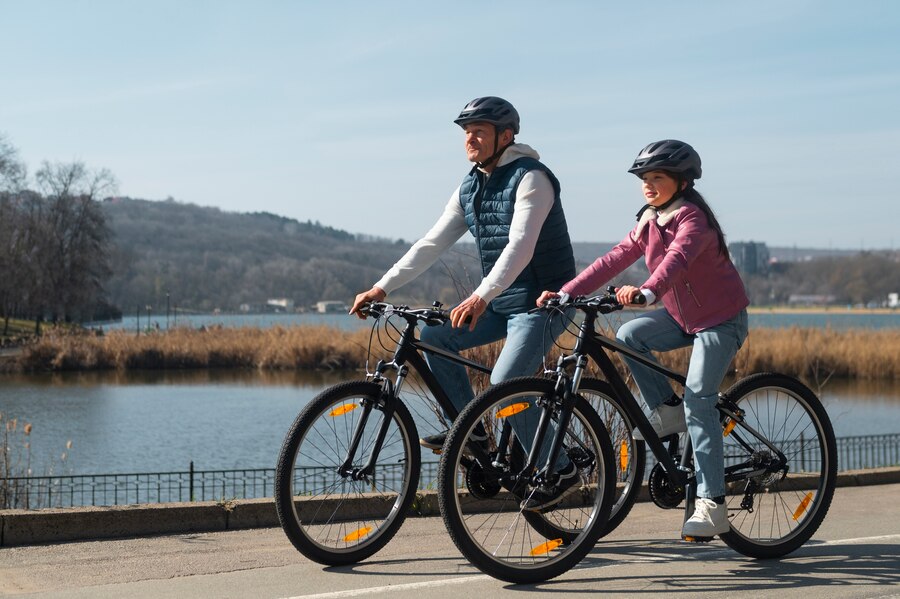
The first thing to do when riding an electric bike in Pennsylvania is to check the local rules and regulations for e-bikes in your chosen area. After familiarizing yourself with road guidelines, you can follow a few additional tips to enhance your e-biking experience.
Do your research into popular bike trails: Pennsylvania offers numerous mountain trails that are well-suited for ebikes. Some great examples include Rattling Creek in Lykens (spanning 22.3 miles), the Roth Rock Tour near State College (25.5 miles), and Lackawanna State Park in Scranton (15 miles). These trails provide a fantastic opportunity to explore the state’s beauty while enjoying a thrilling ride.
Make sure your bike is in good shape: Before heading out on a trail ride, ensure your bike is functioning properly to avoid any technical issues mid-ride. Regular tune-ups and proper maintenance are crucial for keeping your ebike in top condition. Refer to our guide to ebike maintenance for all the essentials to help you stay prepared.
Dress for the season: Pennsylvania is a four-season state, so dressing appropriately for the weather is essential. In cooler seasons, wear layers that you can easily peel off as you warm up during your ride. Check out our cycling dressing guide to ensure you’re ready for all weather conditions while enjoying the trails.
Benefits of Electric Bikes
Ebikes allow riders to travel farther and more frequently, making cycling an accessible option for people who might otherwise be deterred by physical fitness, age, or other convenience factors. They are designed to be as safe as traditional bicycles, ensuring they do not compromise consumer safety while offering a fun and efficient way to get around.
Related: New Hampshire Ebike Laws
E-Bike Safety and Etiquette Tips
- Always check the type and specifications of your device and know where you’re allowed to ride.
Always ride at a safe speed, adjust to trail and weather conditions, and be considerate of others on the trail.
- Keep to the right, pass on the left, and offer a friendly greeting to those you pass.
- Avoid distractions and do not impair your hearing with headphones or earbuds while riding.
- Obey all trail and road signs, slowing down in congested areas and yielding to pedestrians and other wheels.
- Take special care when passing horses or navigating crowded sections of the trail.
- Helmets are required by law for children under the age of 12 and are recommended for riders of all ages.
- Stay on the trail, and avoid going off, creating new paths, or cutting switchbacks.
- Move to the side when taking a break to allow others to pass safely.
- Be prepared for the unexpected, as both humans and animals can be unpredictable on the trail.
Wrapping it Up
Electric bikes offer a great opportunity to enjoy the outdoors, commute efficiently, and live an active lifestyle. By understanding and adhering to Pennsylvania’s ebike laws, riders can have a safe, enjoyable, and fully legal ebiking experience. Whether you’re exploring singletrack trails or navigating streets, the key is to ride responsibly and stay informed about all legal requirements. So, make the most of your rides and stay happy ebiking!
Related: Maryland Ebike Laws
FAQs
Do you need a license to drive an electric bike in Pennsylvania?
No license is required to operate an electric bike in Pennsylvania. Ebikes are not subject to registration, licensing, or insurance requirements like motor vehicles.
Are there any age restrictions for riding an electric bike in Pennsylvania?
Riders under the age of 16 are prohibited from using electric bikes in Pennsylvania. This age limit is designed to increase safety and comply with state laws that encourage responsible use of e-bikes.
Can electric bikes be ridden on sidewalks in Pennsylvania?
Electric bikes are allowed on sidewalks in Pennsylvania, but local city restrictions may apply. It’s recommended to check specific rules and regulations in your area before riding to ensure compliance and safety.
Where are electric bikes allowed to be ridden in Pennsylvania?
A street-legal electric bike is permitted wherever traditional bicycles or pedalcycles are allowed, such as roads and bike paths. However, on trails, particularly natural surface trails, access varies, so it’s essential to check with local land management agencies for the full scoop on riding regulations.
What are the helmet requirements for riding an electric bike in Pennsylvania?
While helmets are not required for riding an electric bike in Pennsylvania, they are strongly recommended for safety reasons. Regardless of what the law says, wearing a helmet can provide added protection and make your ride safer.

